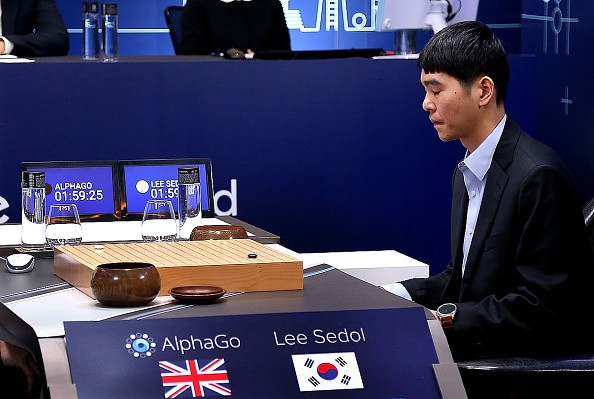After suffering its first defeat on Sunday, Google’s AI program AlphaGo on Tuesday ended a historic Go match against South Korean champ Lee Se-dol with a 4-1 lead in the final match of the best-of-five series.
Although the final winner was already determined on Saturday as Lee lost the first three games of the match, the final game proved to be a close one with both sides fighting hard and going deep into overtime, tech website The Verge said in a report on Tuesday.
The win came after a "bad mistake" made early by AlphaGo in the game that left the AI "trying hard to claw it back," said Demis Hassabis, CEO and founder of DeepMind, the Google-owned British developer of AlphaGo.
"To come back from the initial big mistake against Lee Se-dol was mind-blowing," Hassabis said in a Twitter post after the match.
Lee and and AlphaGo exchanged 280 moves for five hours, the longest among the five games that began last Wednesday in Seoul. The 33-year-old Lee kept a close match with the two-year-old computer program, but eventually lost by a narrow margin.
In a post-game press conference, Lee expressed regret over his defeat.
"I failed," he said. "I feel sorry that the match is over and it ended like this. I wanted it to end well."
Despite his loss, Lee won praise from observers throughout the match for his determined, creative approach against an opponent impervious to stress and fatigue.
"I think we'll be studying these [matches] for years to come," said Chris Garlock, one of the live commentators in Tuesday's press conference, adding that the games were among the most "beautiful and historic games" in Go.
The series marks the first time a computer program challenged a top-ranked professional Go player. Lee, considered as one of the best Go players in the world, holds a high 9-dan ranking with 18 world championship victories and a 70 percent winning rate in professional matches.
AlphaGo's win also broke long-held assumptions that Go, an ancient board game invented in China more than 2,500 years ago, is impossible for computers to play competitively due to the presumed high level of intuition required and the countless possible positions on the board, The Verge said in its report.
The match has also put Go, a game that is popular in Asia but not widely played in the west, under the spotlight.
"I've never seen this much attention for Go, ever," Lee Ha-jin, secretary-general at the International Go Federation, told The Guardian.
Google DeepMind said it is planning on applying AlphaGo's deep neural networks and machine learning capabilities to more pressing areas such as healthcare and robotics.
As for the AI's next opponent, Hassabis remains tightlipped, saying his team will need to return to London to study the results of the match before announcing their next moves.



























